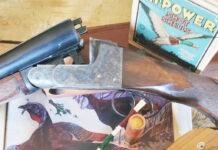Sometime before the end of the year, temperatures will plummet and stay cold. Snow and freezing rain will fly. And wildlife will die.
Many songbirds migrate south to avoid the stress of winter. Many reptiles, amphibians, and mammals hibernate. And some tough it out. Squirrels, raccoons, opossums, and foxes remain active during all but the coldest and snowiest times of the season. They can den up for days at a time to wait out winter storms.
Strategic animals
Wild turkeys and white-tailed deer survive winter by adopting a different strategy. They spend most of the fall in a feeding frenzy If they fail to accumulate enough fat, they will die in January or February. Compounding the problem for deer is the energy demanding rut that is presently underway and can continue until the end of the year.
The first line of preparation for the upcoming months is eating enough food to enter winter in good health. Deer put on layers of fat when acorns and other soft and hard mast are available. Butcher a healthy deer in December, and you’ll find abundant subcutaneous fat and internal organs surrounded by fat.
Fat levels in deer
It is this fat that gets deer through the winter. By late December deer become less active and eat less. Woody browse is their primary winter food. It keeps them alive, but from January until new plant growth emerges in the spring, deer survive by burning body fat. Their body weight may drop by as much as 25 percent during this time. If they did not eat well during the fall, they have a hard time surviving the winter.
Wild turkeys also gorge themselves in the fall. And again acorns are a favorite food, so turkeys and deer compete for this critical food.
Throw in nut-eating squirrels, chipmunks, deer mice, and white-footed mice, and acorns become an even more precious resource.
It might seem silly that small rodents could compete for nuts with turkeys and deer, but there are hundreds of nut-eating small mammals per acre. They collect, eat, and store enough mast to be serious competitors for the best foods.
Turkeys have to fly
Turkeys, however, can’t make fat enough to make it through the winter. They must fly to a roost each night, so if they get too fat, flight becomes a problem.
Turkeys compromise by making enough fat to get them through short spells of severe winter weather, but it’s not enough to last for months. This is remarkably adaptive behavior because turkeys are primarily ground feeders. They scratch through ground cover and leaf litter to find seeds, nuts, and dormant invertebrates.
Foraging strategy
After a big winter storm, this foraging strategy is problematic. At some point, snow gets too deep to scratch through for food. After heavy snows, turkeys can remain in trees for days. They will move from tree to tree eating a marginal diet of buds and anything else they can find in treetops.
If turkeys spot a heavily used deer trail on the ground below, they may descend for brief foraging bouts where the ground is accessible. Or they visit seeps and springs where less snow accumulates. But usually healthy turkeys have enough body fat to survive a week or longer without leaving roost trees.
Spring
Under normal conditions healthy turkey and deer survive winter and live to breed. But sometimes winters are cruel. In March 1993, for example, four feet of snow covered my woods; it took road crews five days to dig us out.
Winter kill
There was too much snow for me to safely explore the woods, so I assumed the winter kill was significant that year. It was another week until the snow in the woods settled enough to be navigable by me, turkey, or deer. Remains of turkey and deer (bones, feathers, fur) I found throughout the spring and summer that year confirmed my suspicion.
Without proper preparation, winter kills
And even wildlife in prime condition die during the worst winter storms. Fortunately, catastrophic winter storms are the exception rather than the rule.













I enjoy your articles on deer and turkey. Although I hunt both for a food supplement, I also enjoy watching and learning about them. I am looking forward to reading more from you.